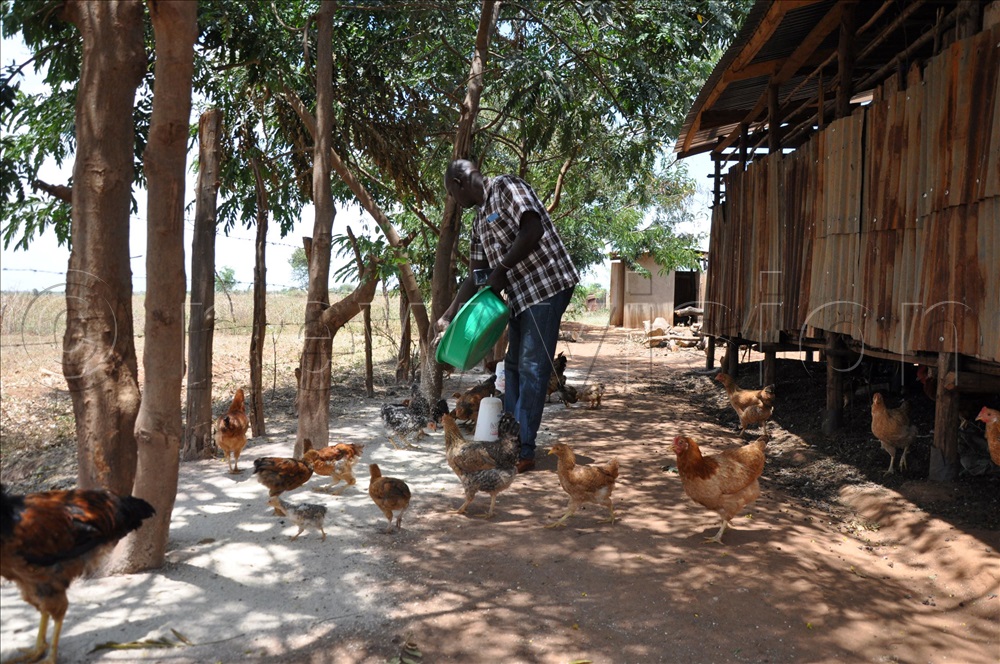By Umar Nsubuga
Once seen as a simple rural activity, local chicken farming has transformed into a lucrative business for those who embrace it with dedication and strategy.
The appeal lies not just in its profitability but also in its versatility, offering both a sustainable source of food and a steady income stream.
By adopting effective management practices, farmers are unlocking the potential of this venture, turning small-scale operations into thriving enterprises.
From meeting household needs to supplying larger markets, local chicken farming proves that even the most traditional ventures can soar with the right approach.
Charles Lule, a seasoned farmer from Matugga in Wakiso District, and Irene Lwanga, an expert from Kanyanya in Kampala, have turned their passion for poultry into thriving businesses.
They share invaluable insights into the art of local chicken farming.
Local chickens, known for their resilience and flavour, are a popular choice among Ugandan farmers.

However, turning local chicken farming into a commercial enterprise requires more than just raising a few birds.
According to Lule and Lwanga, strategic breeding is one of the most critical aspects.
“A farmer must be intentional about the cocks that mate with the hens,” Lule explains.
“You cannot leave it to chance. Selecting healthy, robust cocks ensures that the chicks inherit strong genes, which directly impacts their growth, survival, and market value.”
Lwanga echoes his sentiments, adding that monitoring and managing the breeding process allows farmers to produce high-quality stock that meets market demand.
Why selective breeding matters
Local chickens have a natural tendency to mate freely, which can result in inconsistent offspring quality. By selectively breeding, farmers can control desirable traits such as growth rate, resistance to diseases, and egg-laying capacity.
Lule explains his process: “When choosing a cock, I look for one with a strong, upright posture, vibrant plumage, and no visible defects. It’s also important to consider its parentage if possible. A good cock will father healthy and productive chicks.”
Lwanga, who has been in the business for over a decade, says she maintains detailed records of her flock.
“I keep track of which hens are laying consistently and which cocks have produced the strongest offspring. This data helps me make informed decisions,” she says.
Feeding and housing
While breeding plays a crucial role, proper feeding and housing are equally important in ensuring the flock thrives.
Local chickens are hardy and can forage for food, but supplementing their diet with nutrients can significantly improve their performance.
“I feed my chickens a mix of maize bran, millet, and greens to boost their health and productivity,” Lule shares.
“Access to clean water is also essential, especially during dry seasons.”
Lwanga says the need for good housing to protect the chickens from predators and harsh weather.
“A secure chicken coop with proper ventilation and nesting areas is a must. It reduces stress on the chickens and improves their overall output,” she explains.
Managing diseases
Local chickens are generally resistant to diseases compared to exotic breeds, but they are not immune. Lule and Lwanga both stress the importance of regular health checks and vaccinations.
“Prevention is better than cure,” says Lule.
“I vaccinate my chickens against common diseases like Newcastle disease and deworm them regularly. A healthy flock is the backbone of any profitable chicken business.”
For commercial
Transitioning from subsistence to commercial farming requires careful planning and market analysis. Both Lule and Lwanga advise farmers to start small, understand their market, and scale up gradually.
“Marketing is vital,” Lwanga says. “You need to establish a reliable customer base, whether it’s through local markets, restaurants, or individual buyers.”
“Patience and dedication are key,” says Lule. “When done right, this business can provide a steady income and improve livelihoods.”
With proper breeding, feeding, and care, local chicken farming offers great potential for Ugandans looking to venture into agriculture.
Lule and Lwanga’s experiences serve as valuable lessons for aspiring farmers ready to take on the challenge.





